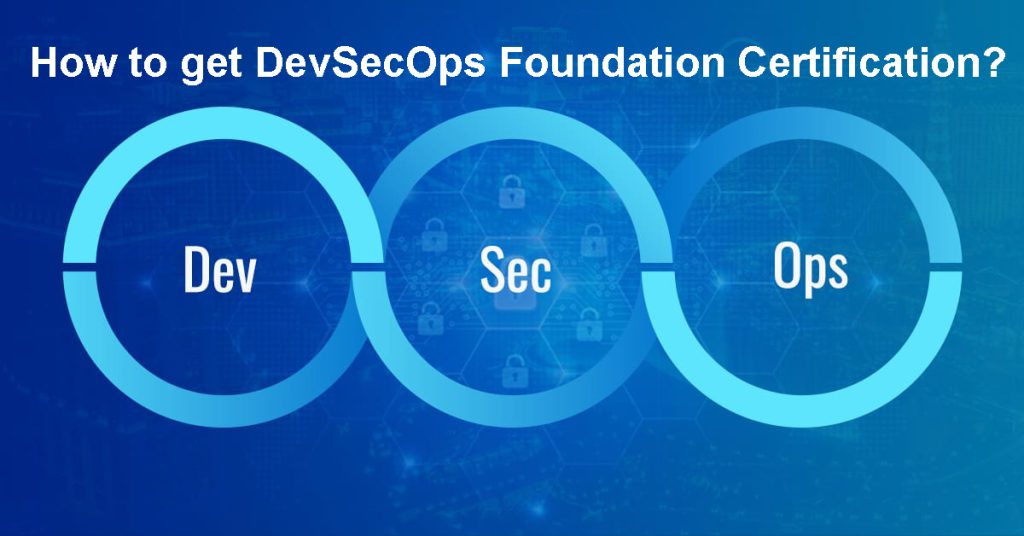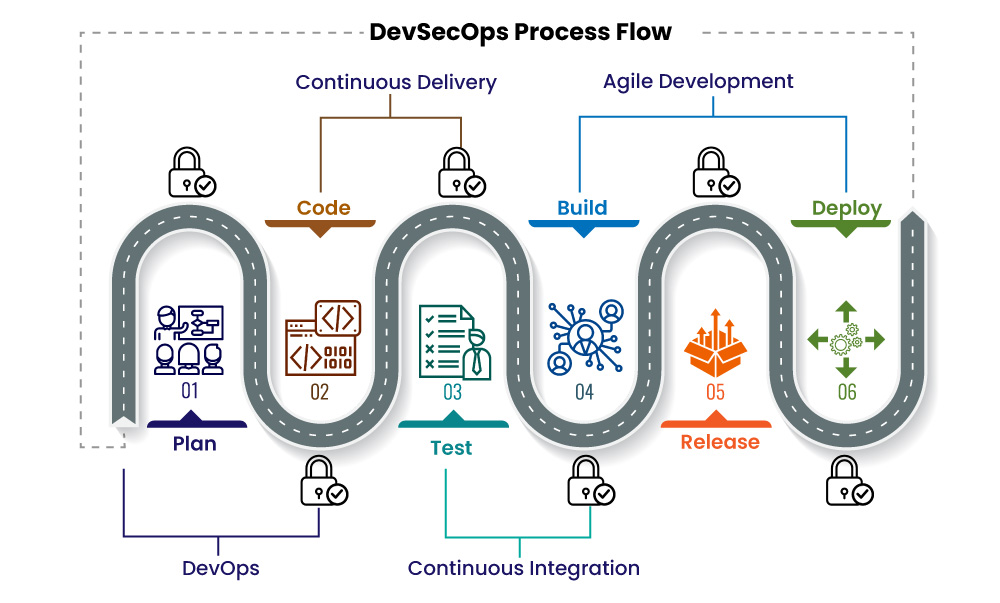Upgrade & Secure Your Future with DevOps, SRE, DevSecOps, MLOps!
We spend hours on Instagram and YouTube and waste money on coffee and fast food, but won’t spend 30 minutes a day learning skills to boost our careers.
Master in DevOps, SRE, DevSecOps & MLOps!
Learn from Guru Rajesh Kumar and double your salary in just one year.

Are you interested in advancing your career in the field of DevSecOps? If so, obtaining the DevSecOps Foundation Certification can be a great way to showcase your skills and knowledge in this rapidly growing field. In this blog article, we will explore the steps you need to take to get certified, providing you with a comprehensive guide to achieving your certification goals.
What is DevSecOps Foundation Certification
The DevSecOps Foundation Certification is a credential that demonstrates an individual’s understanding of integrating security practices into the DevOps process. DevSecOps emphasizes the need for security to be an integral part of the software development and delivery lifecycle, ensuring that security considerations are addressed throughout the development and operations phases. The certification is designed to validate the knowledge and skills required to implement security principles, practices, and tools in a DevOps environment. It aims to bridge the gap between development, operations, and security teams, promoting collaboration and shared responsibility for security.
The DevSecOps Foundation Certification exam covers the following topics:
- DevSecOps principles: The exam covers the fundamental principles of DevSecOps, such as security by design, continuous security, and risk-based security.
- Security testing: The exam covers the different types of security testing that can be performed throughout the SDLC, such as static analysis, dynamic analysis, and penetration testing.
- DevOps tools and technologies: The exam covers the different tools and technologies that can be used to implement DevSecOps practices, such as continuous integration and continuous delivery (CI/CD), infrastructure as code, and containerization.
- DevSecOps case studies: The exam covers real-world case studies that demonstrate how DevSecOps has been used to improve the security of software development.
Why DevSecOps Certification is important?
The DevSecOps Certification is important for several reasons, as it addresses the evolving landscape of software development, operations, and security.
DevSecOps Certification is important for a number of reasons, including:
- It demonstrates your skills and knowledge to potential employers: When you are looking for a job in DevSecOps, having a certification can give you a competitive edge over other candidates. It shows that you have a solid understanding of the principles and practices of DevSecOps and that you are committed to continuous learning.
- Advance your career in the field of DevSecOps: As you gain experience in DevSecOps, you may want to pursue more advanced certifications, such as the DevSecOps Expert Certification. These certifications can help you to advance your career and take on more senior roles.
- Gain access to exclusive resources and events: Many organizations that offer DevSecOps certifications also offer exclusive resources and events to their certified members. This can include access to online courses, webinars, and conferences.
- Stay up-to-date on the latest DevSecOps practices: The field of DevSecOps is constantly evolving, so it is important to stay up-to-date on the latest practices. DevSecOps certifications can help you to do this by providing you with the knowledge and skills you need to be successful in the field.
- Build your network with other DevSecOps professionals: Attending DevSecOps certification events is a great way to meet other DevSecOps professionals and learn from their experiences. This can be invaluable in your career, as you will be able to network with people who can help you advance your career.
What are the tools need to learn for a strong DevSecOps Foundation?

Building a strong foundation in DevSecOps requires familiarity with a range of tools and technologies that help integrate security into the DevOps process. These tools enable you to automate security practices, identify vulnerabilities, and ensure a secure software development lifecycle.
Here are some of the tools that you need to learn for a strong DevSecOps Foundation:
- Monitoring and alerting tools: These tools are used to collect and analyze data about your systems and applications so that you can identify and fix problems before they impact your users. Some popular monitoring and alerting tools include Prometheus, Grafana, and ELK Stack.
- Incident management tools: These tools are used to manage incidents when they do occur. They help you to track the incident, communicate with your team, and resolve the issue as quickly as possible. Some popular incident management tools include PagerDuty, VictorOps, and Opsgenie.
- Infrastructure automation tools: These tools are used to automate the provisioning, configuration, and deployment of your systems and applications. This can help you to save time and reduce errors. Some popular infrastructure automation tools include Terraform, Ansible, and Chef.
- Continuous integration and continuous delivery (CI/CD) tools: These tools are used to automate the build, test, and deployment of your applications. This can help you to release new features and fixes more quickly and reliably. Some popular CI/CD tools include Jenkins, Spinnaker, and CircleCI.
- Containerization and orchestration tools: These tools are used to package your applications into containers, which can then be deployed to any environment. This can help you to improve the portability and scalability of your applications. Some popular containerization and orchestration tools include Docker, Kubernetes, and Nomad.
How DevOpsSchool’s is best for DevSecOps Foundation Certification?
DevOpsSchool is a great resource for learning about DevSecOps and preparing for the DevSecOps Foundation Certification exam. If you are serious about becoming a DevSecOps engineer, I highly recommend checking out DevOpsSchool.
Here are some of the reasons why:
- Expert instructors: DevOpsSchool’s instructors are experienced DevSecOps professionals who have worked in the field for many years. They can provide you with the knowledge and skills you need to pass the exam and become a successful DevSecOps engineer.
- Comprehensive curriculum: DevOpsSchool’s curriculum covers all of the topics that are covered on the DevSecOps Foundation Certification exam. This includes topics such as DevSecOps principles, security testing, DevOps tools and technologies, and DevSecOps case studies.
- Practice exams: DevOpsSchool offers practice exams that can help you to assess your knowledge and readiness for the DevSecOps Foundation Certification exam. This is a great way to identify areas where you need to improve before taking the real exam.
- Community support: DevOpsSchool has a large and active community of DevSecOps professionals who can provide you with support and advice. This can be invaluable in your studies and career.
[…] How to get DevSecOps Foundation Certification? […]